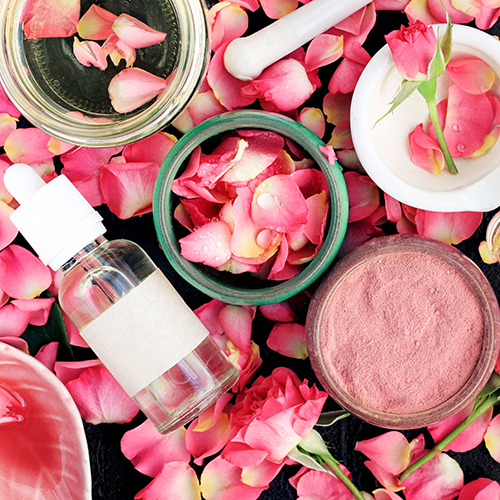We’ve heard so much about them. But what do they actually do?
Essential oils are highly concentrated, volatile plant extracts. The oil captures plant flavour and scent, also known as the ‘essence’. For example, rose oil comes from the petals of a rose, while citrus oil comes from the rind. They are most commonly used in the practise of aromatherapy; either inhaled or diluted before rubbing onto the skin.

Why do people inhale essential oils?
By inhaling the aromas from the essential oils, you can stimulate areas of your limbic system. Your limbic system is a part of your brain that plays a role in a variety of behaviours, your sense of smell, emotions and long-term memory. It’s actually heavily involved in forming memories, which is why familiar smells can trigger emotions or memories.

What’s more, the limbic system can also play a role in controlling unconscious physiological functions like heart rate, breathing and blood pressure. That’s why some people have claimed essential oils can have a physical effect on your body — however this has not yet been confirmed in scientific studies.
Popular oils
Peppermint: used to help with digestion, tackle muscle inflammation, sore throats and boost energy.
Sandalwood: used to help focus, de-stress and calm nerves.
Lavender: used for stress relief and helping to get you to sleep.
Tea Tree: used to boost immunity, ease acne and skin irritations as well as fight infections.

Lemon: used to aid digestion, headaches, moods and more.
Rose: used to reduce anxiety, de-stress and improve your mood.
Cinnamon: this is one of the oldest essential oils, it helps soothe muscle aches and pains as well as clearing chest colds.
The benefits: for stress, depression and anxiety

Initial studies into aromatherapy have been positive, with many showing the smell of some essential oils could even work as a complementary therapy to treat stress and anxiety. It’s actually estimated that 43% of those with anxiety and stress use some sort of form of an alternative therapy to help with their conditions. In fact, rose oil is often recommended to those who are grieving or depressed due to its calming properties.
The benefits: for migraines and headaches

More than half of the adult population experience headaches at some point, with the most common type being a tension headache. A 2012 study suggested that inhaling lavender essential oil can be an effective and safe treatment to manage migraine headaches. And in a 2015 review, it was found peppermint oil, once applied to the temples and forehead, can provide relief from tension headaches.
The benefits: insomnia and sleep

In 2017, a study compared the effects of aromatherapy and acupressure massage on sleep quality and overall quality of life for women. They found that a blend of sleep-promoting essential oils are more effective than acupressure. Sandalwood has an ancient history of use for relaxation and anxiety, with research showing it can have sedative effects and increasing amounts of non-REM sleep.
Need some health and beauty advice? We have both here at Platinum. Follow us on Instagram and Twitter and subscribe to our magazine for more in depth health advice and investigative features.








